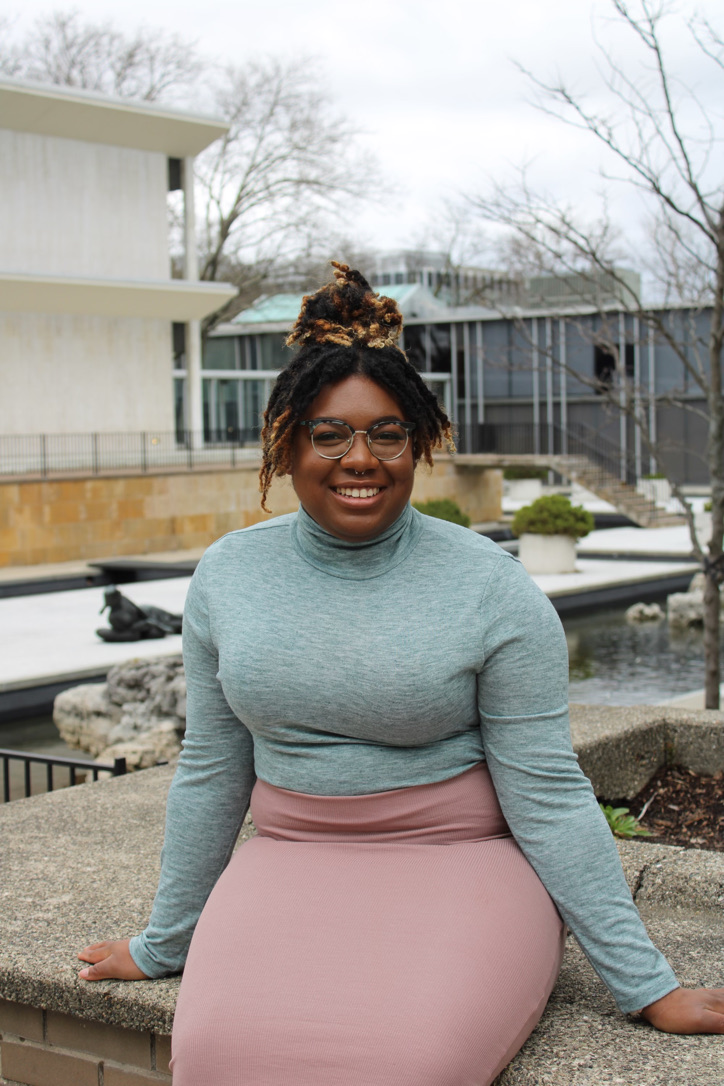Using Black feminism to empower women and girls
 AeYanna Yett grew up in a predominantly white community and those around her took every opportunity to not let her forget it.
AeYanna Yett grew up in a predominantly white community and those around her took every opportunity to not let her forget it.
“I experienced gendered racism daily,” Yett said. “Growing up Black, I witnessed the creed of generational curses.”
She knew she could either let the curse wear her down, or she could exorcise it by using her pain to inform and help others. She chose the latter.
Yett enrolled at Wayne State University as a psychology major minoring in African American studies. She was particularly interested in the impact generational trauma and gendered racism has on Black women and girls’ psychosocial competence and parenting choices.
“Black women live at the nexus of oppression and oppressive-isms,” she said, “which is apparent in their identity as being both Black and female; and this intersection of identity politicizes how Black women can live their life and the way Black girls are viewed in society as they develop.”
As an undergrad, Yett became a trainee in the Initiative for Maximizing Student Development program where she started conducting research, was introduced to the benefits of pursuing a graduate education and Black feminist thought as a theoretical lens.
“Black feminism is a culturally responsive approach that centers Black women’s lived experiences and intersectional identity as Black and female to value and validate their history and understand the context in which they live to empower and enhance psychosocial competence from a political and aesthetic view,” Yett said.
She finally had the theoretical framework to explain what she’d been feeling ever since she was a little girl, to better explain the complexities of Black womanhood.
Once she earned her bachelor’s, Yett continued her education by pursuing a dual-tile master’s in social work and infant mental health and is now the president of the Wayne State University Association of Black Social Workers.
Black feminism has been key to how she approaches her research and practice, she said. It sheds light on the important blend of history, lived experiences, environment, and the practices of the communities she wants to help.
“A wise saying that I hear within my community is, ‘How do you give someone what you think they want without asking them about what they need?’”
Planting seeds
In the summer of 2020, Yett interned through the Humanities Clinic with Tam Perry, Ph.D., calling African American seniors in Detroit to learn about their practices of survival and how they were coping during COVID-19.
She collaborated with Senior Housing Preservation - Detroit and, through that partnership, co-authored a food distribution proposal outlining how community organizations can come together to overcome the city’s seniors’ food insecurity in congregate housing.
Yett is also currently using her research to design and implement what she calls her “dream career project.” Recently named an Albert Schweitzer Fellow, she will use the funds to create a community service project called Project Metamorph-SIS. The project will utilize Black feminist thought to provide a safe space for Black women, teach healthy eating habits as a coping strategy for traumatic stress and how to heal through the cultivation of gardens.
“I am very excited to be working with Ms. Kalimah Johnson of the SASHA Center and Dr. Erica Edwards as my faculty mentor.”
Once she completes her master’s, Yett plans to pursue a Ph.D. in clinical-community psychology. Her social work training and emphasis on a “culturally-competent approach” will inform her doctoral studies, she said.
The root and aim of her research has and will always be to empower Black women and girls to “live the best life that we can, using the traumas that we experience as soil to plant our roots and transform into the beautiful beings that we are created to be.”